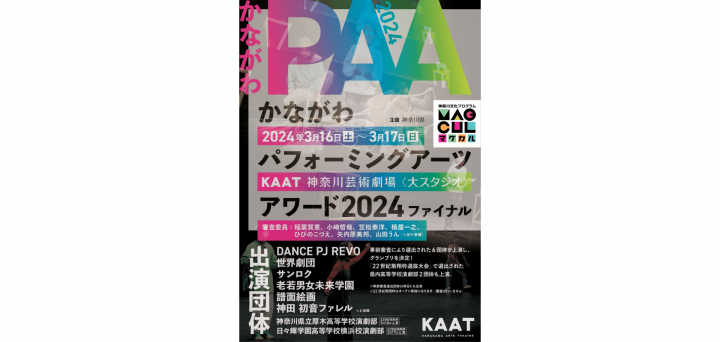"Night on the Galactic Railroad" is a group reading musical that connects with the town
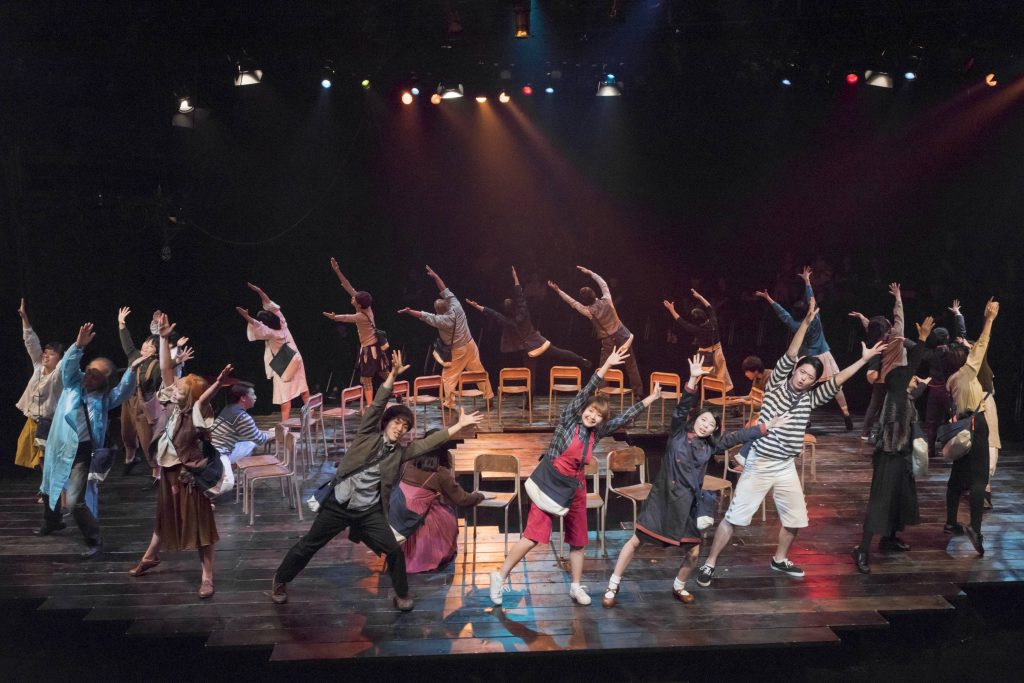
The place where plays are born
File.2 Group Reading Musical Drama "Night on the Galactic Railroad 2018"
(Imai Koichi/Editorial writer)
When you think of universities when you hear the word "theater," you probably think of Waseda University or Nihon University College of Art.
J. F. Oberlin University in Fuchinobe, Sagamihara City, has a School of Arts and Culture, and it may not be widely known that a number of actors and dancers who graduated from the university have been active in the industry recently. However, the university's Prunus Hall is home to cutting-edge activities that are even more cutting-edge than those in Japan.
First of all, the hall is managed and operated mainly by students, and it is not only a place for students to practice and perform, but also hosts a variety of events as a "theater open to the local community."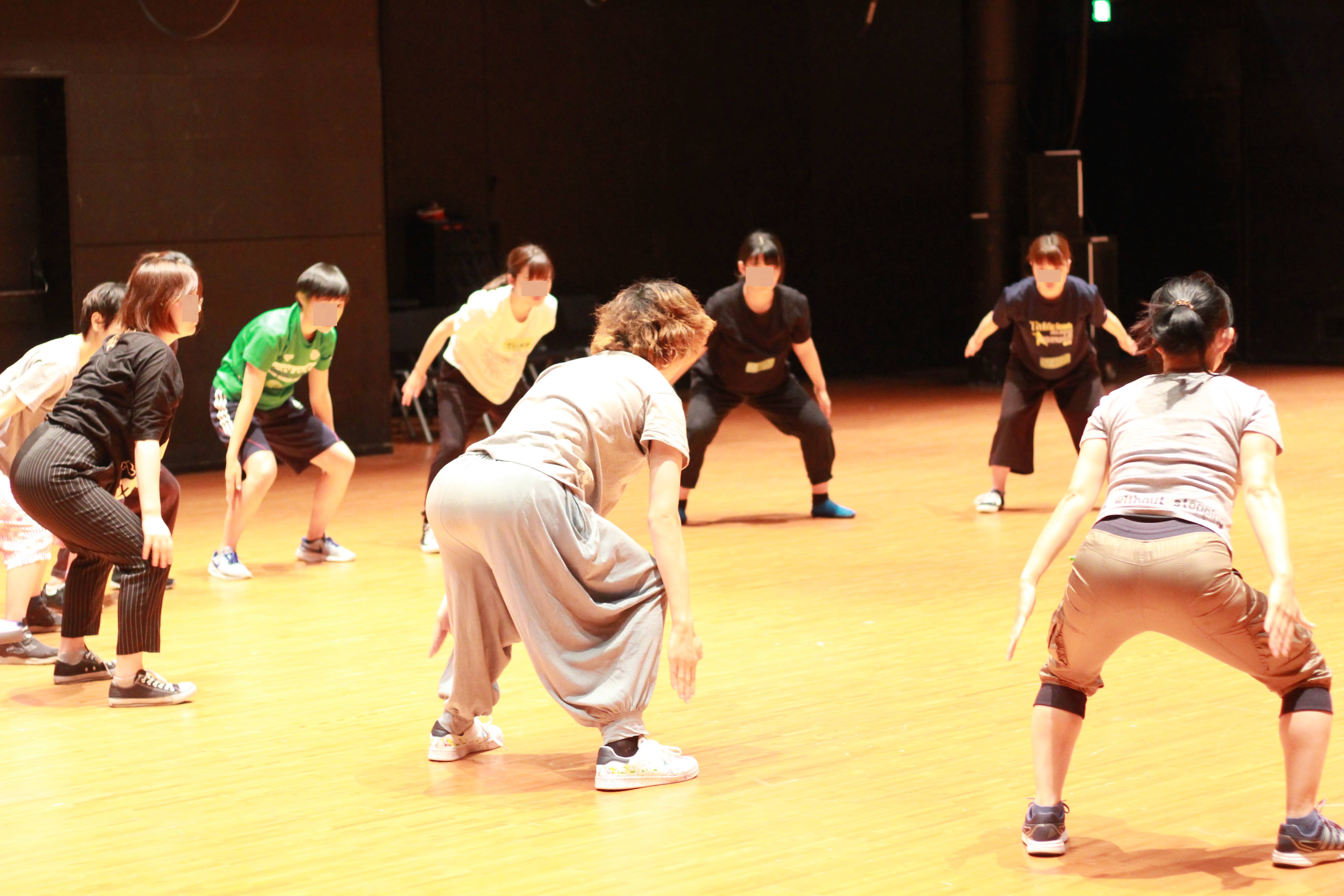
To embody this mission, the theater began a citizen participation project called "Night on the Galactic Railroad," which has become a summer regular and the centerpiece of the theater. This production, created by citizens, students, and professional artists, is now in its 12th year.
Apparently, a whopping 8,521 customers have witnessed it so far.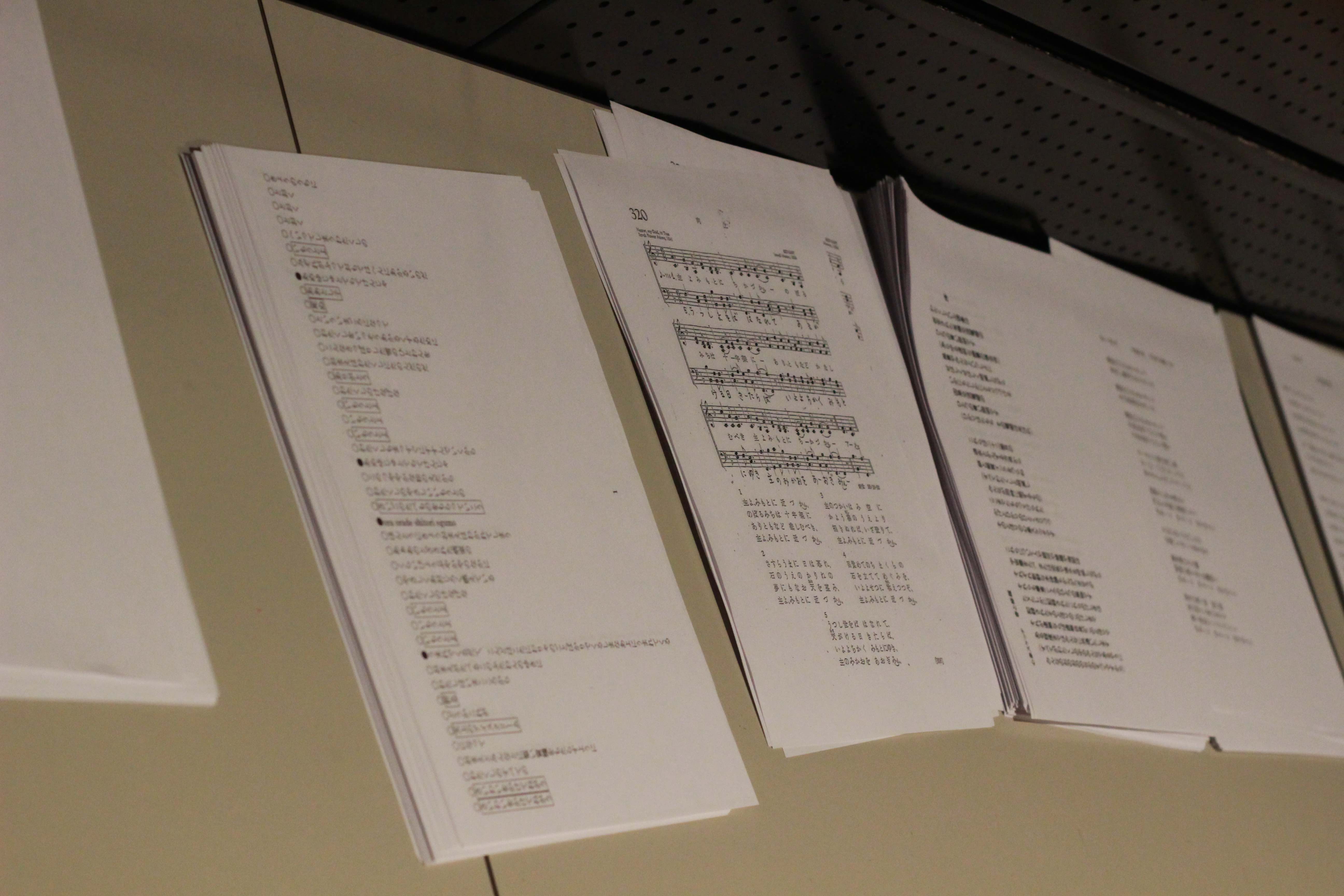
Fuchinobe, where Prunus Hall is located, is known as the "town that spans the galaxy" because of the presence of JAXA, and efforts are being made to create a town that evokes space, such as naming roads after constellations and holding a "Galaxy Festival" in the summer. In that sense, Kenji Miyazawa's "Night on the Galactic Railroad" is a perfect subject.
Moreover, Kenji's unique style of writing, imbued with a breath of life, is also said to be filled with a desire to communicate something. The story, which is themed around the loneliness of the protagonist Giovanni and depicts life and death in a fantastical way, conveys the "human voices" of sadness, joy, and longing. These "voices" are expressed by a cast of local members of various generations and students, who were selected in auditions held last May.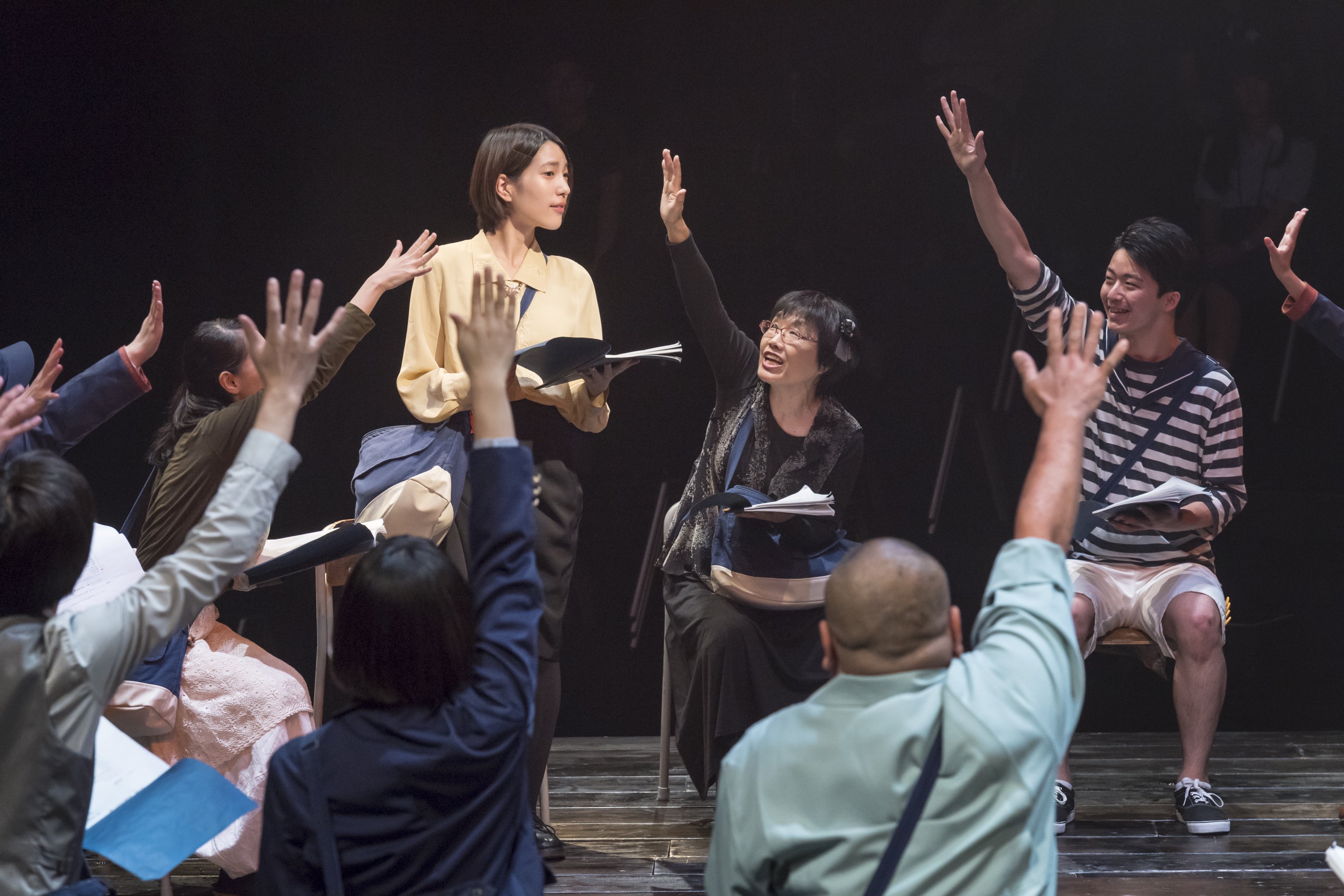
The stage is circular, with a pond of real water in the center, and an island-like acting area within it. Chairs are placed around the pond, and although the cast members have scripts, they run around, dance, and even jump into the water. There is also a collaboration of sounds, including live music, singing, and body percussion. The stage, where vibrant bodies and Kenji's many words, filled with his strong feelings, combine, is reborn into a very profound world.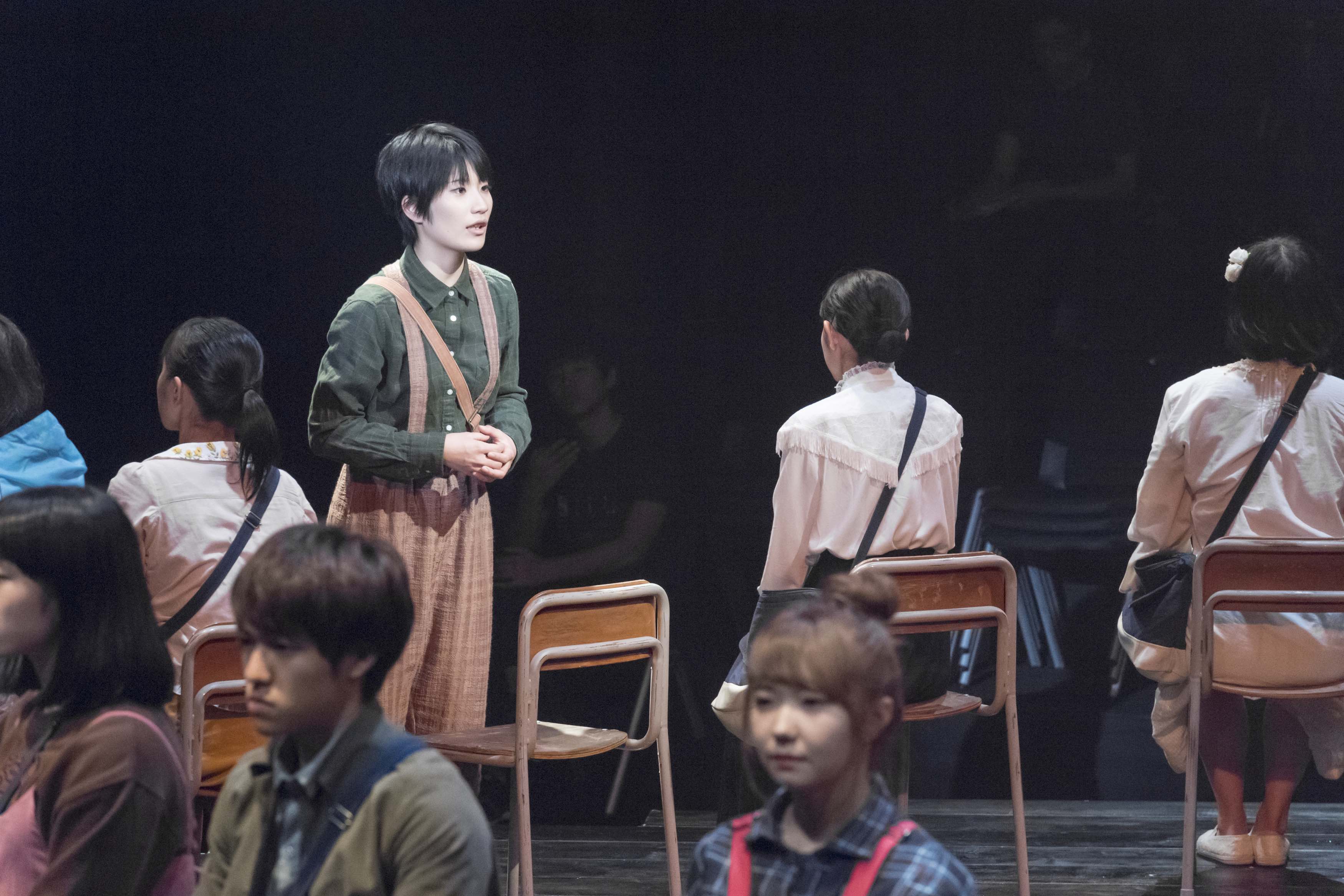
Rehearsals only take place over one week during the summer vacation, but we have the same space and stage set as the actual performance, and we have it all to ourselves from day to night, so it's a very luxurious environment.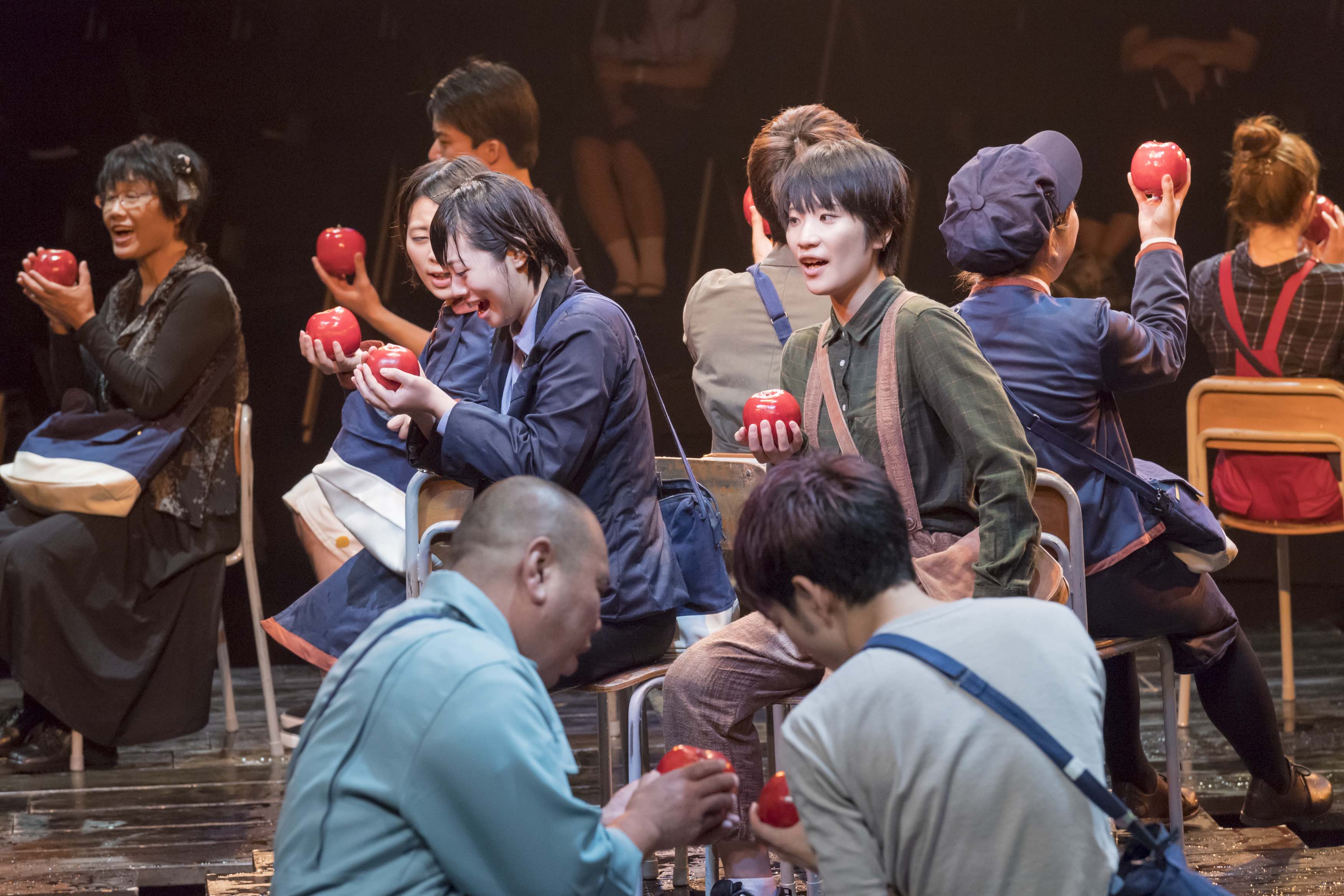
The purpose of this project is for organizers, artists, and participants to provide high-quality performing arts, and its mission is to raise interest in the arts by presenting each other's values regardless of generation, gender, occupation, etc., and to promote artistic activities together with the local community.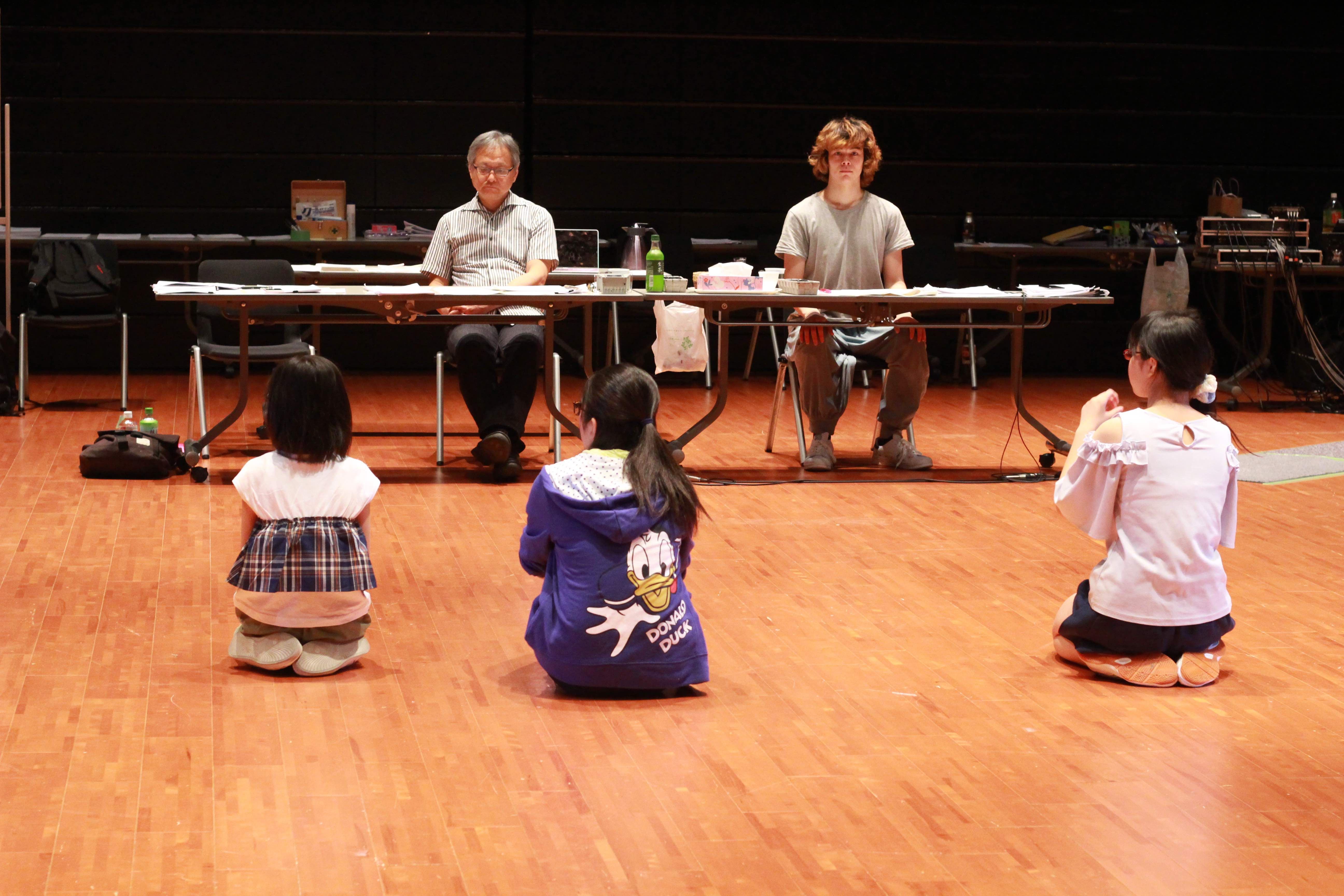
"After the event, I received a letter from a local citizen who had participated. He wrote that the way people of all ages came together, completely absorbed in performing on stage, was exactly the kind of ideal community that Kenji Miyazawa envisioned, as described in his 'Outline of Peasant Art.' I was deeply moved by this."
"One woman who participated when she was 70 years old took the audition 10 years later at age 80 as a commemorative gift, and passed with flying colors. What's more, far from showing signs of aging, her presence seemed to be growing even more brilliant. I felt that this was a lesson for us in the importance of persevering."
This is a memorable phrase that Professor Noso Masao, who is in charge of directing the show, has heard from the citizens he has met so far.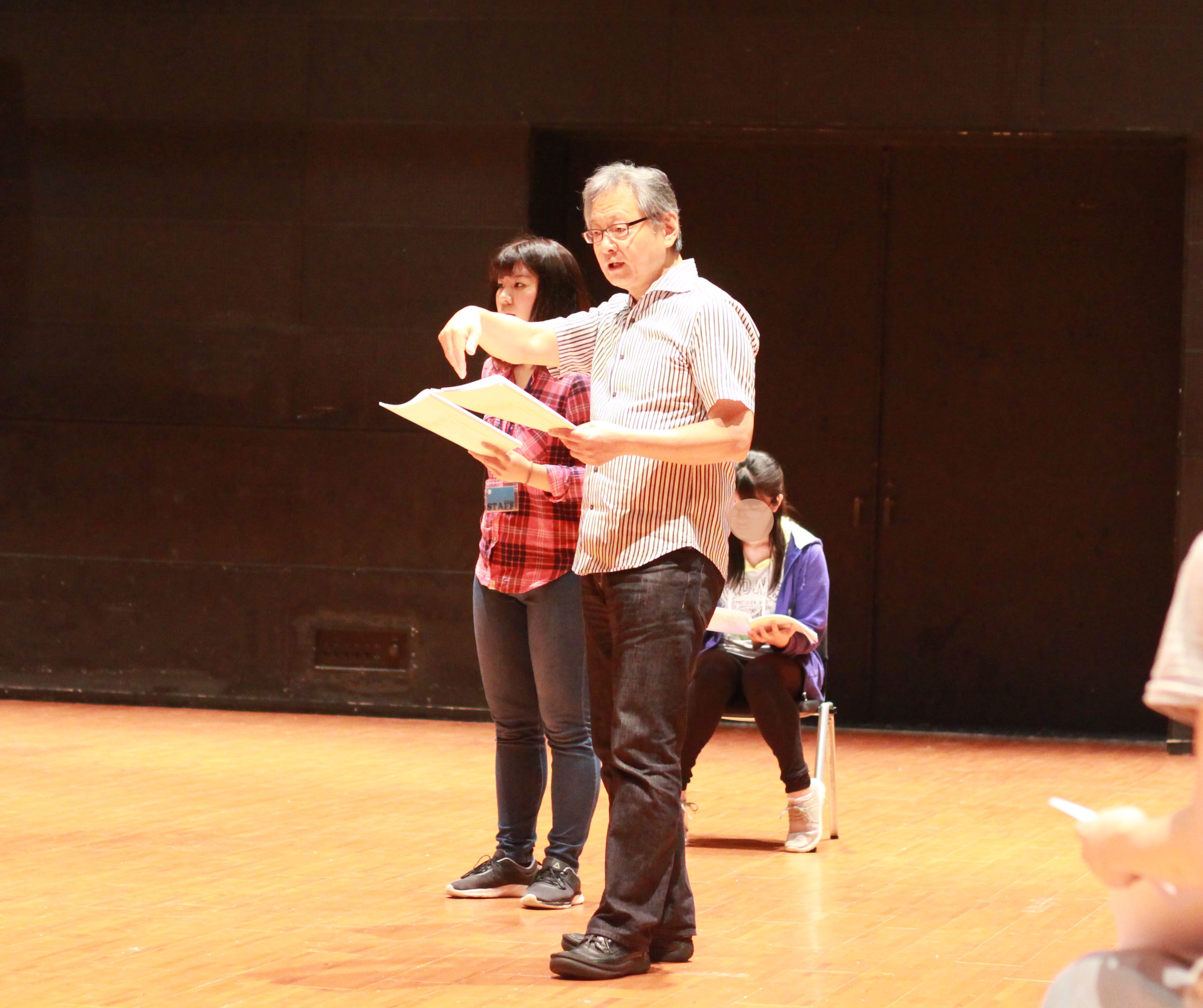
As the history of the play continues, in 2011, following the Great East Japan Earthquake, the play was created with the theme of "Kenji Miyazawa's Prayer." It was even featured on an NHK program as "a stage for overcoming the earthquake disaster."
In 2014, the group traveled to Nishiwaga Town in Iwate Prefecture, Kenji's hometown, and recruited performers from local townspeople to create a Nishiwaga version of the work. In 2015, performances were held at two theaters, "Fuchinobe" and "Meguro," in collaboration with Meguro Persimmon Hall. Furthermore, in 2016, the group performed in Tainan, Taiwan, and is scheduled to perform at the China Academy of Opera in Beijing in October of this year as part of a university exchange program.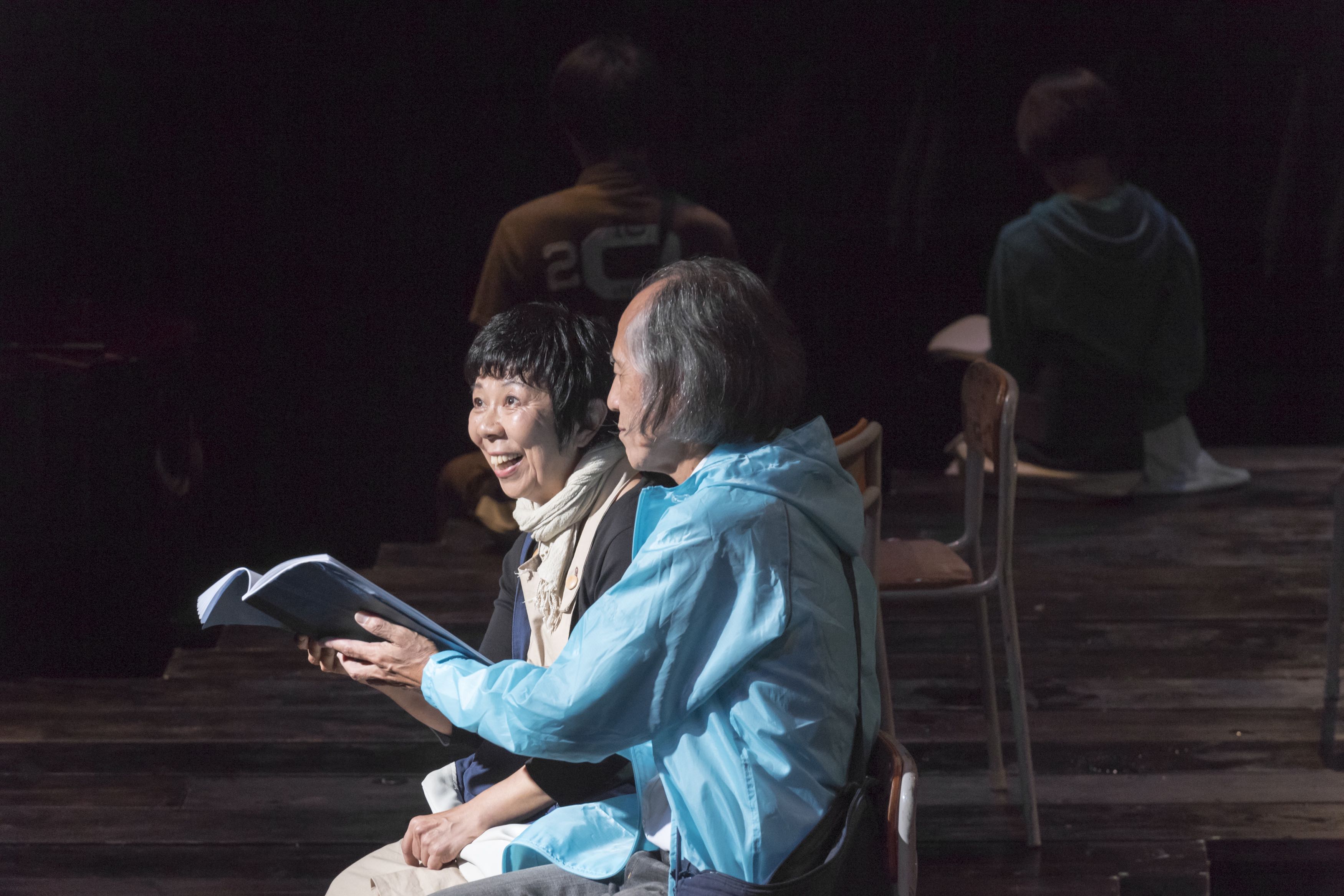
There aren't many works that have grown together with the public in this way. I think the driving force behind this is that they didn't just want it to be "fun" because it involved public participation, but they also made it a paid project and aimed to create high-quality works.
The group reading musical "Night on the Galactic Railroad" is becoming more than just the face of the theater, it is becoming the face of the town. To truly realize this, the key seems to be how far it can connect with the town.
*Photo provided by J. F. Oberlin University Prunus Hall
*All stage photos are from the 2017 performance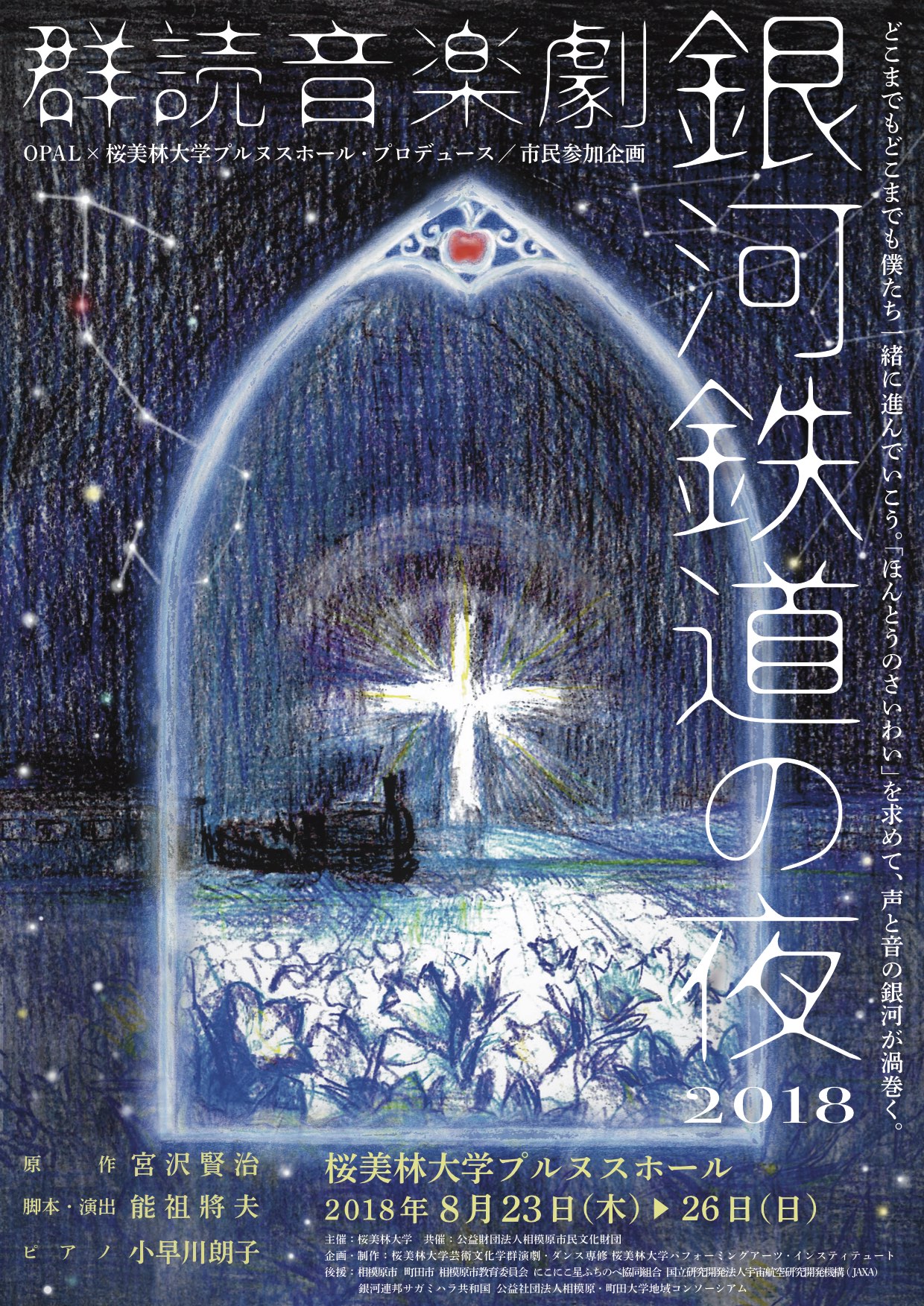
This event has ended.
OPAL x J. F. Oberlin University Prunus Hall Production/Citizen Participation Project
Group Reading Musical Drama "Night on the Galactic Railroad 2018"
■Date and time: Thursday, August 23, 2018 to Sunday, August 26, 2018
■ Venue: J. F. Oberlin University Prunus Hall
■ Original work: Kenji Miyazawa
■Script and direction: Noso Masao (Professor, Department of Theatre, College of Arts and Culture, J. F. Oberlin University)
■Music: Akiko Kobayakawa (Associate Professor, Music Department, College of Arts and Culture, J. F. Oberlin University)
■ Choreography: Kanda Hatsune Farrell (graduate of J. F. Oberlin University, School of Arts and Letters)
■ Cast: 23 citizens and students selected through auditions, Hatsune Kanda Farrell (dance), Akiko Kobayakawa (piano)
■Ticket price: Adults 1,200 yen / Students 1,000 yen *Additional 300 yen on the day
■ Release date: July 16th (Monday)
■Start times: 23rd and 24th 19:00, 25th 14:00/19:00, 26th 14:00
■Inquiries: J. F. Oberlin University Prunus Hall Tel. 042-704-7133 (10:00-18:00)



